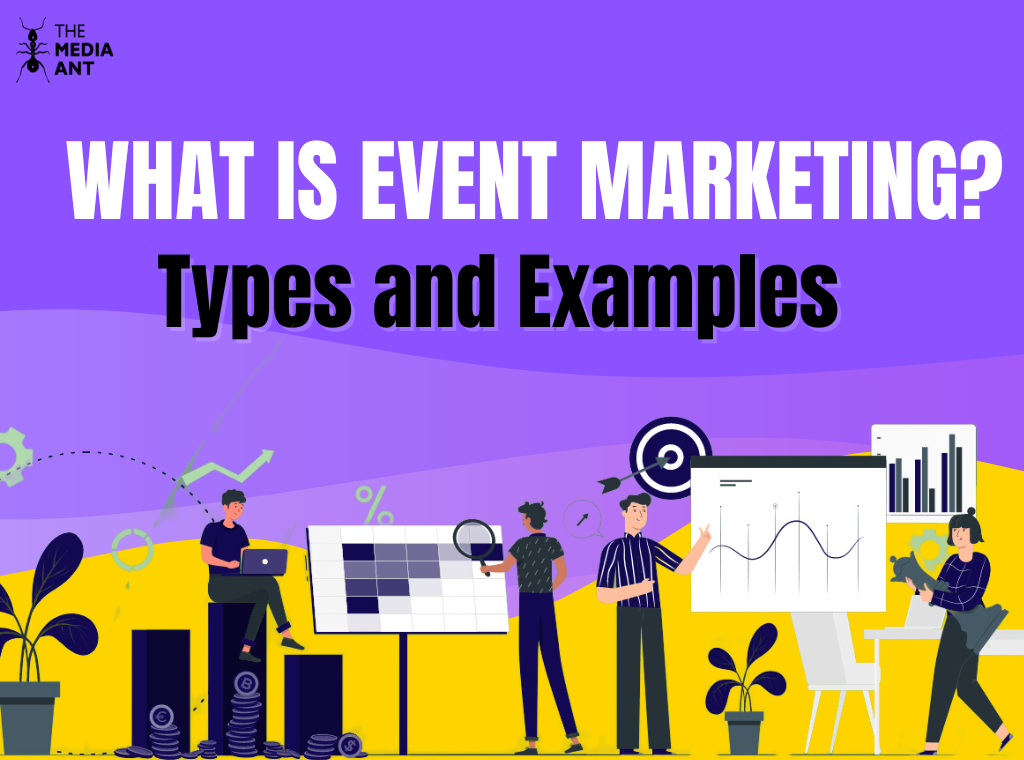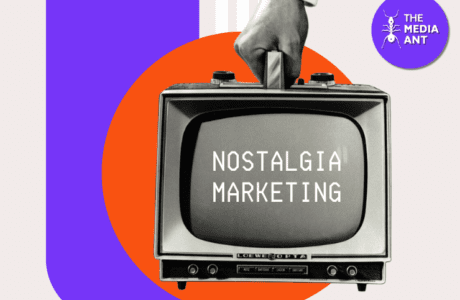In today’s digital world, brands are constantly seeking ways to connect with their audience on a deeper level. Enter event marketing, a powerful strategy that transcends traditional advertising to create engaging experiences for your target market. Whether you’re hosting your own event, sponsoring an existing one, or participating in online forums, event marketing allows you to build lasting relationships, showcase your brand values, and achieve tangible results. Dive into this guide to explore the different types of events, their benefits, and inspiring examples to see how event marketing can supercharge your brand’s success.
What is Event Marketing?
Event marketing is a strategic approach to promoting a brand, product, or service through the creation and execution of live experiences. It goes beyond traditional advertising by fostering face-to-face interactions and meaningful connections with your target audience.
In simpler terms, it’s about using events as a platform to engage, educate, and connect with your audience, ultimately driving brand awareness, lead generation, and business growth.
Types of Event Marketing
1. In-person Events
In-person events offer a powerful way to connect with your audience face-to-face and create lasting experiences. These events allow for interactive engagement, brand immersion, and building stronger relationships. Here are some popular types of in-person events used for marketing:
– Trade shows
Large-scale industry events where companies showcase products, network with potential customers, and stay informed about industry trends.
– Conferences
Focused gatherings of industry professionals or enthusiasts, ideal for thought leadership, product launches, and educational sessions.
– Appreciation events
Events that acknowledge and celebrate customers or partners, fostering stronger relationships and loyalty.
– Meetups
Casual gatherings around a shared interest, ideal for community building and engaging your target audience in a relaxed setting.
– Launch parties and celebrations
Generate excitement and buzz around new product launches or significant brand milestones.
– Workshops
Educational events offering hands-on learning experiences related to your products or services, showcasing your expertise and building trust.
2. Online marketing events
With the rise of digital communication, online marketing events have emerged as a powerful tool to reach a geographically dispersed audience. They offer flexibility and accessibility, allowing for engagement without physical location limitations. Here are some popular types of online marketing events:
– Seminars
Online or virtual presentations on specific topics, allowing access to industry experts and fostering knowledge sharing.
– Live streaming events
Real-time interactive events that engage a broad audience remotely, featuring live presentations, Q&A sessions, and interactive elements.
These online events can be cost-effective and provide valuable content to a wider audience, attracting attendees who might not be able to attend physical events. They can also be recorded and replayed for future access, extending the reach and impact of the event.
Importance of Event Marketing
Event marketing offers a multitude of benefits for businesses, making it a valuable tool for achieving various marketing goals. Here are some key reasons why event marketing is important:
1. Generate one-on-one customer engagement
Unlike traditional advertising, events allow for direct interaction with your target audience. This face-to-face interaction fosters deeper connections, allowing you to understand their needs, answer questions, and build trust.
2. Promote product and industry education
Events provide a platform to educate your audience about your products, services, and industry trends. Through workshops, seminars, and product demonstrations, you can showcase your expertise and establish yourself as a thought leader.
3. Boost brand awareness
Events help you reach a wider audience and increase brand visibility. Through participation in industry events, sponsoring relevant conferences, or even hosting your own event, you can get your brand name out there and create a lasting impression.
4. Generate leads and sales
Events are an effective way to generate leads and convert them into paying customers. By capturing leads at events and offering valuable content, you can nurture relationships and turn them into loyal customers.
5. Establish Leadership and Credibility
Participating in industry events, speaking at conferences, or hosting educational workshops allows you to position yourself as a thought leader in your field. This strengthens brand credibility and fosters trust with your target audience.
6. Gather valuable research and feedback
Events provide an opportunity to interact with your audience directly and gather valuable insights into their needs, preferences, and feedback. Surveys, polls, and Q&A sessions can be used to gain valuable market research data to inform future business decisions.
B2B Event Marketing Strategy
For businesses targeting other businesses (B2B), event marketing can be a powerful tool to generate leads, build relationships, and establish thought leadership. Here’s a B2B event marketing strategy to get you started:
1. Define your goals and target audience
- What do you want to achieve with your event? Is it brand awareness, lead generation, or client engagement?
- Who are you trying to reach? Understanding your ideal client profile is crucial for tailoring your event strategy.
2. Choose the right event format
- Consider your budget, resources, and target audience.
- Explore options like industry conferences, trade shows, webinars, or even exclusive workshops for your clients.
3. Promote your event effectively
- Leverage social media platforms like LinkedIn and Instagram.
- Utilize targeted email marketing campaigns to reach potential attendees.
- Create a dedicated event website with detailed information, registration options, and speaker profiles.
Event Marketing Ideas: Spark Excitement and Drive Attendance
In today’s competitive landscape, standing out requires creative and engaging marketing strategies. Event marketing offers a unique opportunity to connect with your audience on a deeper level, and these ideas can help you maximize its potential.
1. Leverage Instagram Stories
Utilize the ephemeral nature of Instagram Stories to generate pre-event buzz and showcase behind-the-scenes glimpses. Share sneak peeks of the venue, speaker interviews, or exclusive event content to pique interest and create a sense of anticipation.
2. Follow the Hashtag and Join the Conversation Pre-Event
Follow relevant hashtags and actively participate in conversations online before and after your event. Ask engaging questions, share insights, and respond to comments to establish your brand as a thought leader within your industry.
3. Create an Event-Specific Website
Create an event-specific website as your central information hub. This landing page should be visually appealing and provide comprehensive details about the event, including registration options, speaker profiles and bios, event schedule and agenda, and FAQs.
4. Highlight the Value Proposition
Be transparent about the benefits of attending your event. Clearly communicate the key takeaways, networking opportunities, and unique experiences offered, ensuring potential attendees understand the value proposition and why participating is worthwhile.
5. Generate Excitement with Giveaways
Run a ticket giveaway campaign to generate buzz and attract attendees. Utilize social media platforms or email marketing campaigns to offer free or discounted tickets through contests or interactive activities.
6. Give People What They Want
Tailor your event content around your audience’s needs and interests. Conduct surveys or focus groups to understand their preferences and desired topics. This audience-centric approach ensures the event resonates with their expectations and fosters a positive experience.
By implementing these creative ideas, you can supercharge your event marketing strategy, drive higher attendance, and ultimately achieve your marketing objectives. Remember, the key lies in creating a valuable and engaging experience that leaves a lasting impression on your attendees.
Event Marketing Examples
To showcase the effectiveness of event marketing, here are some real-world examples of brands utilizing different approaches:
1. Facebook IQ Live

The launch of Facebook IQ, a unit dedicated to unraveling how people connect on social networks, was a brilliant example of out-of-the-box event marketing. Facebook brought the concept to life for business leaders by crafting a lively “neighborhood” filled with actors embodying the possibilities of customer data. Imagine strolling through the Instagram Café, savoring latte art, and exploring real-life case studies. These experiences not only made the conference memorable but also helped attendees truly grasp how Facebook IQ could be their ally in understanding audiences and navigating the social landscape.
2. Twitter Beach
During the 2019 Cannes Lions International Festival of Creativity, Twitter set up a cool spot called Twitter Beach where folks could unwind away from the festival buzz. They added in some great music, media-themed activities, a photo booth, and even handed out some snazzy branded goodies. While keeping the vibe laid-back, Twitter didn’t forget about business. They shone a spotlight on their #StartWithThem campaign and had personal meetings up on their VIP terrace. It was like a chill hangout with a dash of marketing flair.
3. Intel at Computex

To make a lasting impact at a major event, showcasing cutting-edge technologies can be a game-changer. Intel demonstrated this strategy effectively at the 2016 Computex trade show when Gregory Bryant, an executive, presented his keynote speech as a hologram. This innovative approach served as a remarkable way to highlight the capabilities of Intel products, leaving a lasting impression on the live audience. For those with budget constraints, exploring alternatives like virtual or augmented reality can still offer a technologically advanced and captivating experience at your own event.
FAQs on Event Marketing
What is event-based marketing?
Event-based marketing refers to using events as a central marketing strategy to achieve specific goals like brand awareness, lead generation, or customer engagement.
What are the 3 E’s of event marketing?
The three core pillars of successful event marketing are often considered to be:
Engagement: Creating interactive and engaging experiences for attendees.
Education: Providing valuable information and insights to your target audience.
Experience: Going beyond information sharing to create a memorable and impactful experience.
Why choose event marketing?
Event marketing offers a unique opportunity to:
Build personal connections with your target audience in a face-to-face setting.
Showcase your brand values and expertise in a more interactive way compared to traditional advertising.
Create lasting impressions that can lead to stronger brand loyalty and advocacy.
How effective is event marketing?
When done well, event marketing can be highly effective in achieving various marketing objectives. It can generate leads, improve brand awareness, and drive sales.
What is the power of event marketing?
The power of event marketing lies in its ability to create emotional connections with your target audience. By fostering meaningful interactions, you can build brand loyalty, trust, and ultimately drive positive business results.





